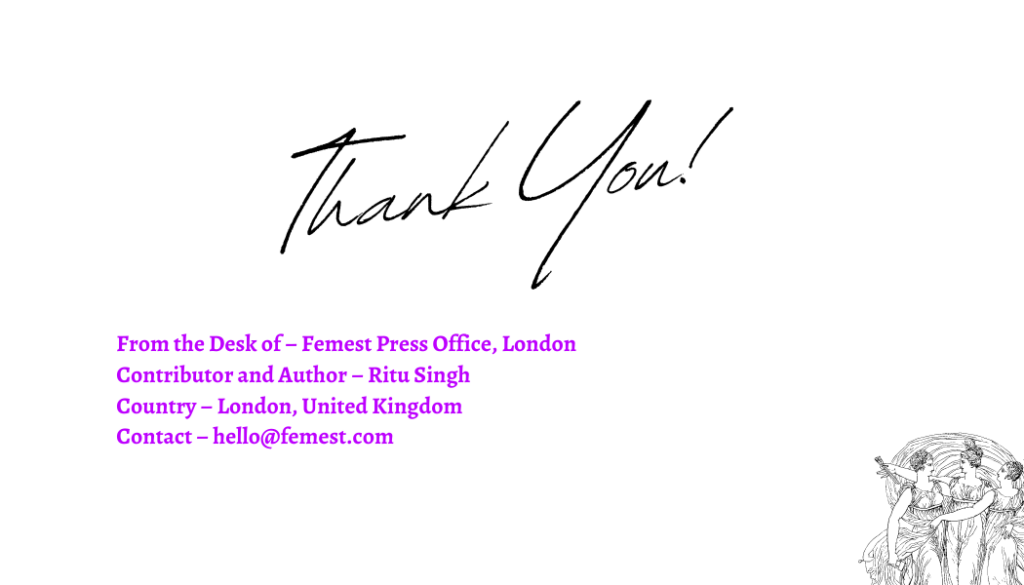Reena Merchant’s journey is defined by resilience and authenticity. Growing up as a Canadian of Indian heritage, bicultural expectations shaped her voice and her leadership. With 20+ years at Google, YouTube, and Sony PlayStation, Reena proves that true success comes from leading with empathy, vulnerability and breaking the mold.
Can you introduce yourself and tell us about your journey into leadership, especially in the tech industry?
I’m Reena Merchant, a tech leader, author, and advocate for purpose-driven leadership with over 20 years of experience leading teams at some of the world’s largest companies, including Google, YouTube, and Sony PlayStation.
My journey into leadership wasn’t linear—it was shaped by moments of challenge, self-reflection, and the realization that true leadership starts from within. As a Canadian of Indian heritage, navigating bicultural expectations early in life taught me the value of resilience and self-discovery.
In the tech world, I’ve witnessed the power of empathy and authenticity in building innovative, high-performing teams, and these values have become the foundation of my leadership approach.

You’ve had an extensive career in tech, working with major companies like Google, YouTube, Sony PlayStation, and others. What have been some of the key lessons you’ve learned along the way?
One of the most significant lessons I’ve learned is the importance of leading with authenticity. In tech, where results and data are paramount, it can be tempting to conform to traditional leadership norms that emphasize control or authority.
However, I’ve found that leading with transparency and empathy creates a more engaged and innovative team culture. Another key lesson is the value of fostering psychological safety—when people feel safe to voice ideas or take risks, creativity flourishes.
Lastly, I’ve learned that leadership isn’t about having all the answers; it’s about providing a clear sense of direction while also empowering others to contribute their unique perspectives and strengths.
You’ve been a strong advocate for authentic leadership. How would you describe what authentic leadership means to you?
Authentic leadership is about showing up as your whole self and leading from a place of purpose and values. It’s not about perfection or fitting into a predefined mold but about embracing your unique strengths and using them to inspire and empower others.
For me, authenticity also means vulnerability—being honest about challenges and creating space for others to do the same. This approach builds trust and connection, which are critical for effective leadership in today’s world.
Can you share a specific moment in your career when you decided to lead authentically, despite the pressure to conform to traditional leadership norms?
Early in my career, I was encouraged to adopt a more authoritarian leadership style since that was the norm in the industry—to be louder, more aggressive, and less empathetic. It didn’t feel natural to me, but I tried it anyway, and the results were clear: I felt disengaged and disconnected from my team and my own values.
I realized I couldn’t sustain that approach and decided to embrace my strengths in empathy and open communication instead. The shift in my team was almost immediate. By leading authentically, I not only gained their trust but also saw their productivity and creativity soar.

How did adopting a more empathetic and transparent leadership style impact your teams and workplace culture?
The impact was transformative. Teams felt more engaged, motivated, and willing to share ideas. Transparency created an environment of trust, and empathy helped build deeper connections.
I noticed that people were more invested in their work because they felt valued not just for their output but as individuals.
This shift also led to better collaboration and innovation, as team members felt safe to take risks and contribute their unique perspectives. Ultimately, it fostered a culture where people cared about each other, and felt empowered to do their best work.
Many leaders are taught to separate their personal and professional lives. How did embracing both help you create a more connected and engaged work environment?
For years, I believed in compartmentalizing my personal and professional lives, but it often left me feeling fragmented.
When I started integrating both, I found that sharing my authentic self—whether it was talking about challenges or passions outside of work—made me more relatable and approachable as a leader.
This openness encouraged my team to bring their whole selves to work, creating a culture of connection and belonging. It also helped me build stronger relationships, which are the foundation of any successful team.

What role does empathy play in your leadership, and how does it contribute to retaining talent and boosting team morale?
Empathy is at the heart of how I lead. It’s what helps me truly understand and support my team. When people feel genuinely seen and valued, they’re not just more engaged and committed; they actually thrive.
Empathy builds trust and loyalty, and those are the foundations of any strong team. When people feel safe and supported, they’re able to do their best work, and the whole team benefits.
You’ve worked in environments that emphasized productivity and results. How do you balance these expectations with your commitment to authenticity and empathy?
It’s a delicate balance, but I’ve found that authenticity and empathy actually enhance productivity and results.
By prioritizing trust, open communication, and psychological safety, I create a foundation where teams can perform at their best. I set clear expectations and accountability while ensuring that my team has the support they need to thrive.
This balance requires constant reflection and adjustment, but it ultimately leads to sustainable success for both individuals and the organization.

What do you think are the biggest barriers that women face in leadership roles and how can they overcome them?
One of the biggest barriers is the expectation to conform to masculine leadership traits, which can stifle authenticity and self-expression. Another challenge is the lack of representation and mentorship, which can make it difficult for women to envision themselves in leadership roles.
To overcome these barriers, women need to embrace their unique strengths and build supportive networks. Organizations also have a responsibility to create inclusive cultures that value diverse leadership styles and provide opportunities for growth.
In your opinion, what’s the most important quality a female leader should possess in today’s rapidly changing world?
Adaptability. The world is evolving at an unprecedented pace, and leaders must be able to navigate change while staying true to their values.
For female leaders, this means embracing both their resilience and intuition to lead with authenticity and impact. Adaptability also requires a willingness to learn, unlearn, and grow, which is essential for staying relevant and effective in any field.
We’re excited about your upcoming book, Women Gone Wild: The Leadership Edition. What inspired you to contribute to this book, and what key message will you share with readers?
I was inspired by the opportunity to share my journey and insights on authentic leadership with a broader audience.
My key message is that leadership isn’t about conforming to societal norms or external expectations—it’s about embracing your whole self and leading with courage, empathy, and purpose.
I hope readers walk away feeling empowered to redefine leadership on their own terms and create meaningful impact in their lives and communities.

Lastly, what advice would you give to women looking to break into leadership roles or start their own entrepreneurial journey?
Trust yourself. Leadership and entrepreneurship are filled with uncertainty, but believing in your vision and capabilities is the first step to success.
Surround yourself with mentors and allies who support your growth, and don’t be afraid to take risks. Remember, you don’t have to have all the answers—authenticity and a willingness to learn will take you far.

